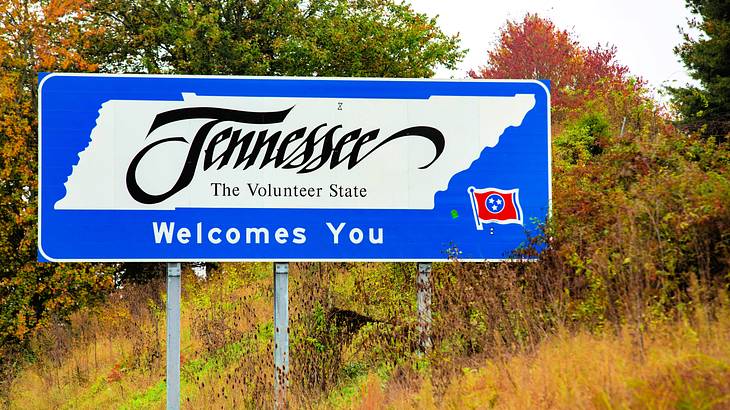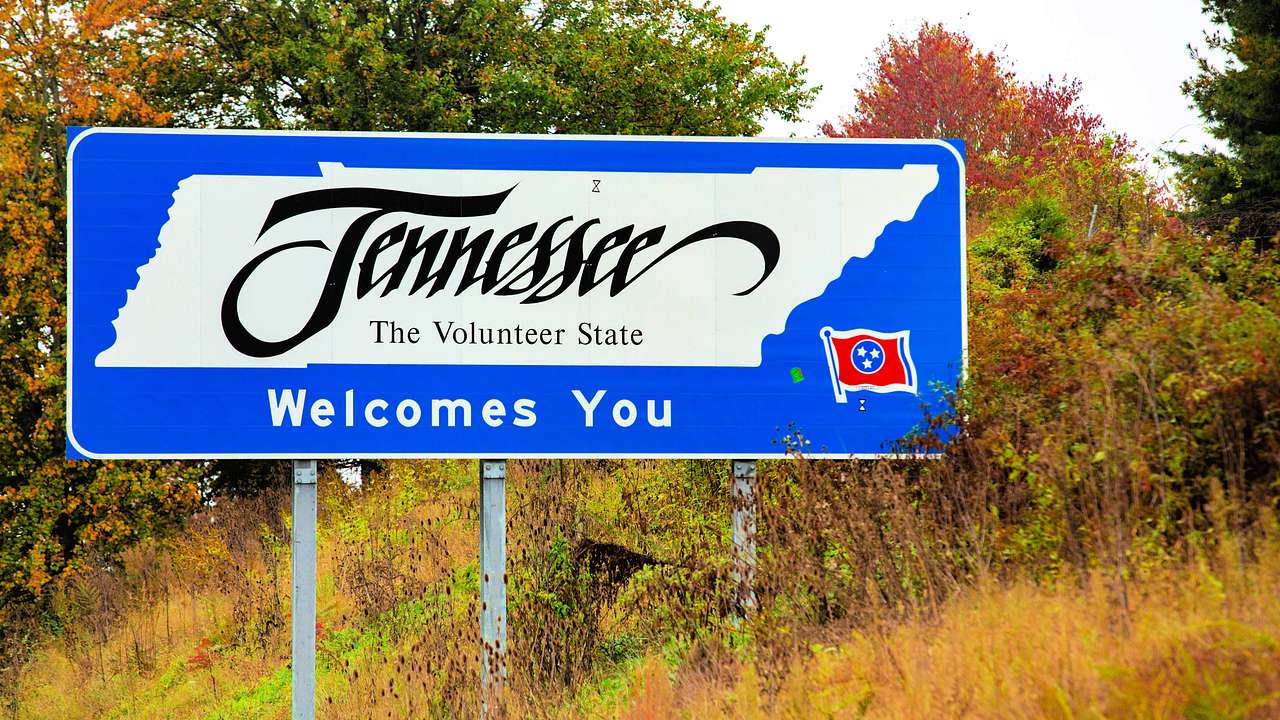7 Tennessee Nicknames and the Stories Behind Them
Destguides may receive commissions from purchases made through affiliate links in this article.

The southern state of Tennessee borders the Mississippi River to the west and the Blue Ridge Mountains to the east. It is also a part of Appalachia, a geographical and cultural region in the Southeastern United States known for its myths, music, and cuisine.
Tennessee is additionally known by various nicknames, highlighting the state's beauty, history, and cultural contributions. While some Tennessee nicknames are widely known, the stories behind them might not be. For example, did you know that the popular nickname of the Volunteer State is a direct reflection of its military history? Read on to find out how that and other nicknames for the state came to be.
7 Nicknames for Tennessee

Big Bend State
The Big Bend State dates back to the early Cherokee nation settlements along the Tennessee River on the state's side of the Appalachian Mountains. The Cherokee tribe known as Tanasse (or Tennese) formed the basis for the state's name, which was originally interpreted to be "bend in the river."
The nickname also refers to the region's geography. The Tennessee River originates in Knoxville and is the largest tributary of the Ohio River, stretching for 652 miles. This natural landmark flows through the state twice, dipping briefly into nearby states like Alabama before bending back into Tennessee.
The Butternut State
The Butternut State nickname is a nod to Tennessee's history. When soldiers from Tennessee fought in the American Civil War, the fabric of their uniforms was dyed to a light brown using butternut. The nuts were widely available at the time, making it an affordable and accessible option.
Also known as white walnut, butternut trees are native to Tennessee, meaning that the moniker also relates to the state's flora.

Hog and Hominy State
The Hog and Hominy State nickname is now mostly obsolete. This Tennessee nickname gained traction in the mid-1800s when corn and pork production soared in the state. The handle was a fitting ode to the strength of the area's agricultural community.
Interestingly, the state is still known for its hominy. Soybeans and corn are some of Tennessee's most common crops. However, the region has shifted from pork to beef production, resulting in the Hog and Hominy State moniker no longer being a good fit.
The Mother of Southwestern Statesmen
The next nickname speaks of Tennessee's role in shaping the government of the United States. The Mother of Southwestern Statesmen is a fitting tribute to the birthplace of three American presidents and numerous prominent political figures.
Andrew Jackson served as the seventh president of the United States. A fun Tennessee fact is that Jackson was the state's first representative. James Polk was the ninth Governor of Tennessee, along with being the eleventh president.
In 1865, Andrew Johnson (who had been the fifteenth Governor of Tennessee) became the seventeenth president of the Union following the assassination of Abraham Lincoln. Johnson is also the only president in history to return home and serve as a senator after his presidency.

The Iris State
The Iris State is another nickname for Tennessee that references the area's native landscape. Many species of iris are grown in Tennessee, a hardy perennial plant with tall stems and bursting petals. Purple irises have also featured on one of the state's license plates.
In 1933, the iris was officially named the state flower of Tennessee. Since a group of elementary school students had named the passion flower the state icon several years earlier, this sparked a controversy that lasted until 1973.
At that time, the state legislature adopted a formal compromise. The passion flower became the state wildflower. On the other hand, the iris was named the state cultivated flower and is now one of the most recognizable symbols of the state.
The Music City State
The Music City State nickname refers to the region's role in the national music scene. The state capital and largest city of Nashville is widely known as Music City for its contributions to country, blues, rock and roll, and gospel music.
Notably, the Tennessee landmark Grand Ole Opry made Nashville the hub of the country music recording industry in the 20th century. Additionally, prominent musicians and recording artists, including Elvis Presley, Dolly Parton, and Johnny Cash, all got their start in Nashville.
Memphis, Tennessee, along with many other cities in the state, also have strong musical ties. Due to this rich music history and culture across the region, it's no wonder that Tennessee ultimately became known as the Music City State.

The Volunteer State
The Volunteer State may be the most popular and recognizable Tennessee state nickname. Its origin dates back to the War of 1812, when thousands of soldiers from the state volunteered to fight the British in the Battle of New Orleans. The Tennessee soldiers are widely considered to have played a significant role in the victory.
This spirit of support was cemented in Tennessee's history during the Mexican War. The state asked for 2,800 volunteers, and over 30,000 people responded. Today, the University of Tennessee student body and athletic teams are known as the Volunteers in honor of the state's heritage. The slogan also adorns the state license plate.
In Summary
Tennessee's nicknames speak to its long and storied traditions, history, and geography. The Volunteer State honors the thousands of soldiers who have fought for the nation, while the Mother of Southwestern Statemen notes the state's political contributions.
Tennessee's beautiful landscapes gave rise to the Iris State nickname, while the Music City State honors its musical contributions. There are even some nicknames historians feel should remain in the record books. No matter how you view the state of Tennessee, you'll find a nickname that fits.
Want to keep exploring?
Subscribe for discounts on tickets and hotels and our latest guides.
Thank you for subscribing
We will be in touch soon with discounts on tickets and hotels and our latest guides.
Want to keep exploring?
Subscribe for discounts on tickets and hotels and our latest guides.
Thank you for subscribing
We will be in touch soon with discounts on tickets and hotels and our latest guides.






